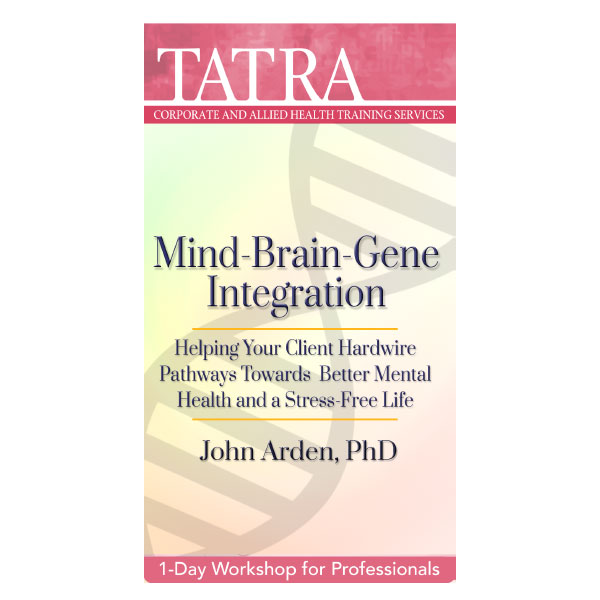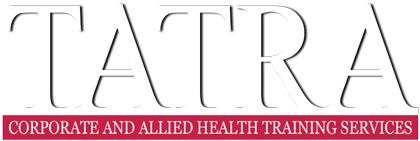Mind-Brain-Gene Integration: Helping Your Client Hardwire Pathways Towards Better Mental Health and a Stress-Free Life

John Arden, PhD, ABPP
John Arden will present a powerful model of transformative psychotherapy providing an integrative approach to the diverse fields of epigenetics, neuroscience and clinical work. The workshop will be filled with research, practical self-care, clinical interventions and hope. It will challenge both the ways you view psychopathology and behaviour change, and it will provide novel perspectives that can be used by clients to revitalize their health and improve their lives.
Course Dates
Sydney: 9 March 2020, SMC Conference & Function Centre
Melbourne: 12 March 2020, Bayview on the Park
Adelaide: 16 March 2020, Next Gen Memorial Drive
Brisbane: 18 March 2020, Mantra on Queen
Perth: 23 March 2020, Wollaston Conference Centre
9:15am to 4:30pm
- Modernise your approach to clinical interventions and better mental health care.
- Learn how to bridge mental and physical health in a fresh and compelling integration.
- Learn about the latest advances in attachment theory, trauma, neuroscience, epigenetics, human development, and mind training.
- Amalgamate state-of-the-art research on issues concerning the mind, the body, social interaction, and gene expression.
- Understand the complex interconnections between body (neurological and immunology) and mind (psychological).
In this seminar, John Arden, the internationally known author, researcher and speaker, will present a powerful model of transformative psychotherapy providing an integrative approach to the diverse fields of epigenetics, neuroscience and clinical work. The workshop will be filled with research, practical self-care, clinical interventions and hope. It will challenge both the ways you view psychopathology and behaviour change, and it will provide novel perspectives that can be used by clients to revitalize their health and improve their lives.
The discovery of interactions between the mind, brain and our genes is constantly being developed. It is critical for professionals to have a complete overview of the current research within this field.
This seminar presents the sea change revolutionizing psychotherapy of the 21st Century. Back in the 20th Century there was a blizzard of psychotherapy schools, with a seemingly new approach surging in popularity, only to fade away as a distant memory a few years later. The 21st Century psychotherapy is all about the integration of what we have learned and synthesizing the new research on mind-brain-gene feedback loops. Teaching clients about these interactions boosts their motivation, improves their lives and paves a way towards lasting good mental health.
Join Dr John Arden and uncover a wide variety of relationships between stress, trauma, depression, anxiety, the immune system, and gene expression.
There are significant relationships between immune system function, stress, insecure attachment, anxiety, depression, poor nutrition, bad quality sleep, physical inactivity, and neurophysiological dysregulation. The interaction between all these factors has been illuminated by studies examining the effects of life style factors on the incidence of health and psychological problems. For example, insecure attachment, deprivation, and child abuse contribute to anxiety and depression in far more extensive ways then was believed. This complex range of health conditions effects millions of people who seek psychotherapy, counselling and support from mental health and disability services.
About the Speaker
John Arden, PhD, ABPP, is a psychologist specializing in neuropsychology. He is widely known as an entertaining speaker and is talented at integrating diverse fields. Author of 15 books, including Brain2Brain,The Brain Bible, Rewire Your Brain, Brain-Based Therapy with Adults and Brain-Based Therapy with Children and Adolescents. His new book is entitled Mind-Brain-Gene: Toward the Integration of Psychotherapy.
Learning Objectives
- Learn how to help clients change their brains, immune systems, and how their genes can be turned on or off.
- Help clients gain hope and motivation that their brains, bodies, gene expression, and minds are changeable.
- Learn that therapy integration moves us from the 20th Century’s focus on parts of a person, the 21st Century’s focus on the whole person instead of the clubs and franchises of the past to the discovery of common denominators based on research.
Program Outline
- Understand the relationship between health and mental health
- Learn about the interaction between the immune system, genes, brain dynamics, and mental health
- Understand how genes can be expressed or suppressed
- Teach clients that genes are turned on or off
- Understand the pandemic facing Australia with obesity and autoimmune disorders
- Help clients understand how to eradicate chronic inflammation that clouds their thinking and dampens their moods
- Learn new research and discoveries about how early adverse childhood experiences (ACEs) can effect long-term health
- The greater the number of ACES the greater the risk of multiple health, mental health, and social problems.
- Learn how the stress systems can be turned on and turned off
- Learn how chronic and acute stress can dysregulate the immune system
- Teach your clients how they can prevent chronic diseases by controlling their stress response
- Teach clients about their stress and survival emergency response systems and the basic steps to turn them off
- Understand how the immune system is intricately connected to brain systems
- Understand how autoimmune disorders contribute to depression, anxiety, and cognitive problems
- Teach clients how chronic inflammation can contribute to mood dysregulation and cognitive deficits
- APS: Activities do not need to be endorsed by APS. Members can accrue 7 CPD hours by participating in this activity
- AASW: Members can accrue 7 CPD hours by participating in this activity
- ACA: Members can accrue 5 CPD points by participating in this activity
A certificate of attendance will be emailed to participants following the workshop.


